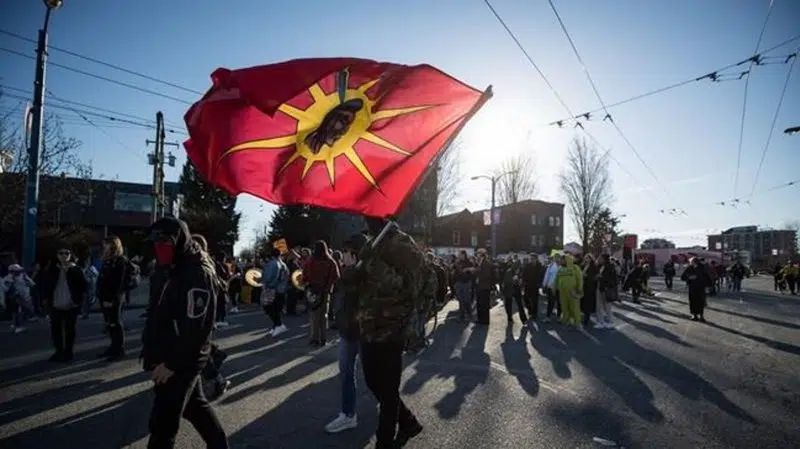
Hereditary chiefs say they’ll meet with ministers if RCMP get out
VANCOUVER — A small, mobile RCMP detachment in a remote area of British Columbia has become a bargaining chip in proposed talks that many hope could put an end to blockades that have disrupted rail and road traffic across the country.
The demonstrations are in support of Wet’suwet’en hereditary chiefs who oppose a natural gas pipeline through their territory and the federal minister in charge of Indigenous relations has proposed a meeting with the chiefs to diffuse the situation.
However, a hereditary chief representing one of 13 Wet’suwet’en house groups, said they won’t meet with Carolyn Bennett and her B.C. counterpart Scott Fraser until the RCMP detachment is removed.
Chief Woos accuses the RCMP of acting as “bullies,” and says all hereditary chiefs are in agreement.


